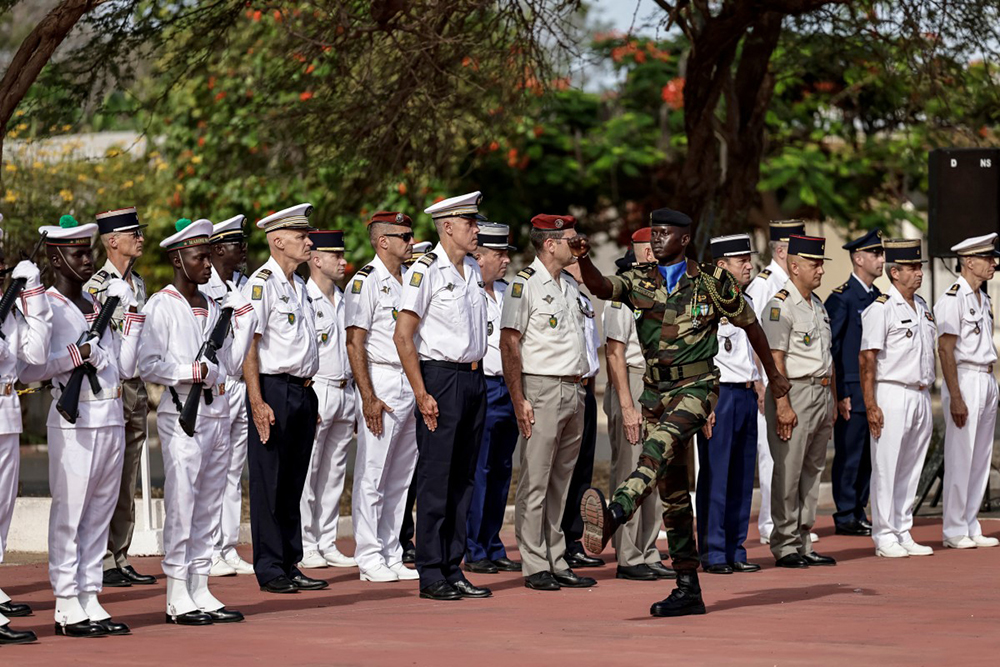Smaller EU nations push for greater Africa role
"There is a wave of second-generation Africa policy refreshes completed and... underway," said Alex Vines of the European Council on Foreign Relations.
Flags of European Union countries are seen in Krakow, Poland. (Credit: AFP)
JOHANNESBURG — From Finland opening diplomatic outposts in Senegal to Czech instructors training Mauritanian security forces, a group of smaller European nations has joined a global scramble for influence in Africa.
Estonia, Romania and Malta are among European Union countries that have sought to boost their presence on the continent over the past five years, revamping diplomatic and trade links.
"There is a wave of second-generation Africa policy refreshes completed and... underway," said Alex Vines of the European Council on Foreign Relations.
"It shows the growing importance of Africa across the EU including for its smaller member states."
Africa has emerged as a renewed diplomatic battleground in recent years, with China, the United States and Russia competing for its minerals, energy potential and political support.
The EU styles itself as the continent's "leading partner" in areas ranging from trade to security, a role it will try to reinforce at a summit with the African Union in Angola on Monday and Tuesday.
Yet it has suffered setbacks at times, fuelled by resentment at the West's colonial past, with China securing strategic resources in some countries and Russia taking over as preferred security partner in others.
Burkina Faso, Niger and Mali have, for example, turned to the Kremlin for support after cutting ties with France following a string of military coups.
'Back in the game'
This has led to a strategic rethink in many corners of the 27-nation EU.
"We needed to somehow get back into the game," a European diplomat told AFP.
Some EU nations with no former empires have sought to use their history -- and in some cases their past domination by Russia -- as an asset to establish relations seen as egalitarian, not top-down.
"We are not seen as the big oppressor from the past telling them to do this thing or the other," said a second diplomat speaking on condition of anonymity.
Estonia's painstaking transition from ex-Soviet republic to EU member has helped it find some common ground with African nations, said Daniel Schaer, the Baltic country's ambassador to Kenya and South Africa.
"In the '90s, we had all of these advisors coming to tell us how we should do things. So I think our advice is in some ways fresh," he said.
Similarly, Kaarina Airas, who is in charge of Africa policy at Finland's foreign ministry, said her country's struggle for independence has helped generate goodwill.
"Our African partners want trade, they want political relations with us and not only development aid," she told AFP.
A Senegalese soldier marches past French army staff ahead of a ceremony where France returned Camp Geille, its largest base in the country, and its airfield at Dakar airport, in Dakar on July 17, 2025. the pull-out comes after similar withdrawals across the continent, with former colonies increasingly turning their backs on their former ruler. (AFP Photo)
After a policy review in 2021, Finland opened a new embassy in Senegal, followed by Sweden and Denmark, and is aiming to double trade with Africa by 2030.
Estonia has deployed its tech expertise to digitalise private and public services from Namibia to Uganda, while Hungary has gained a foothold in Chad, opening a humanitarian aid centre and a diplomatic mission in the capital, with plans to launch a military mission to train local forces.
Such efforts often pursue national political and business interests, from fighting Islamist militants to curbing migration and winning contracts for local firms.
But they have allowed the EU to diversify its offer at a time when African nations have no shortage of suitors.
'A good path'
Whether that will pay dividends remains to be seen, said Geert Laporte of ECDPM, a European think-tank.
Some initiatives experienced teething problems as a few countries started their new engagements almost from scratch or with limited resources.
As Estonia still has only one embassy in Africa -- in Egypt -- Schaer said he spends about half his time travelling.
And Airas said it has taken some time for Finnish businesses to build knowledge and opportunities in Africa, as many -- aside from telecoms group Nokia -- had practically no experience there.
Trade figures show encouraging signs for the inroads made by smaller EU nations.
While still a small fraction of Europe's total, Estonia's trade in goods with the continent has almost doubled since 2019, while Hungary's was up 35 percent over the same period, EU figures show.
The Czech Republic, Finland and Denmark, have also seen significant increases, albeit at a slower pace than the 25 percent recorded by the EU as a whole.
"We are on a good path," said Airas.